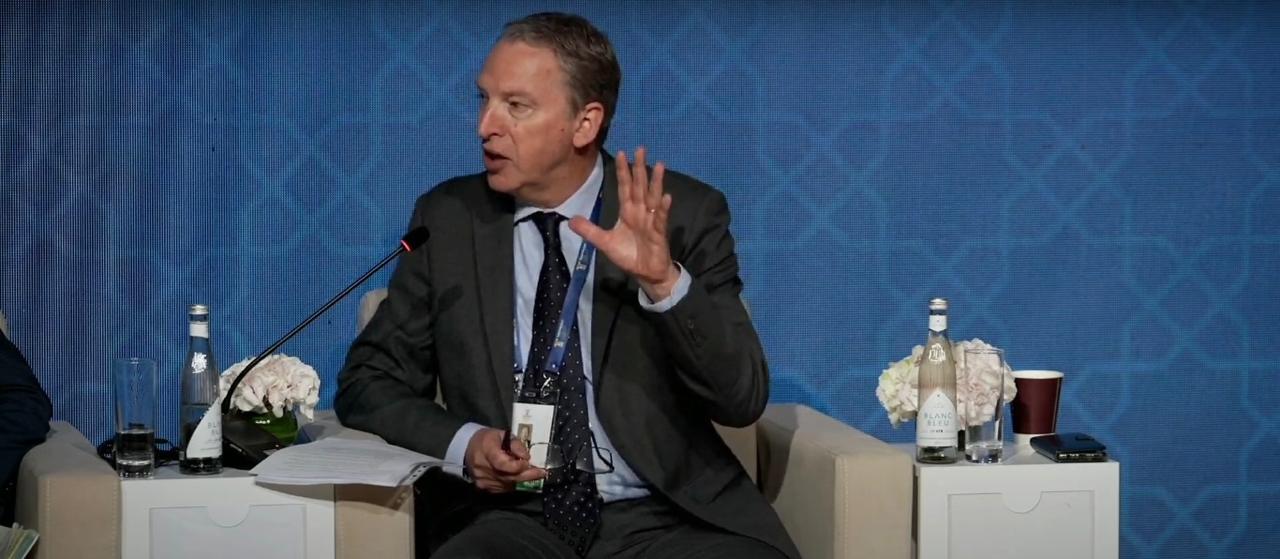BAKU, Azerbaijan, June 10. French energy giant EDF is advancing a major cross-border hydropower project in Central Asia, aiming to produce electricity in Tajikistan for exclusive supply to Uzbekistan, said Pierre Paul Antheunissens, General Director of EDF Central Asia, during the panel discussion "EU-Central Asia Partnership: The Road from Samarkand Summit" within the IV Tashkent International Investment Forum, Trend reports.
“At EDF we are involved in a beautiful project. We hope it will reach completion—it’s about producing hydroelectricity on Tajik territory with 100 percent of the output supplied to Uzbekistan. This is something real. We are working on it in close coordination with both Ministries of Energy, and a joint venture has already been established in Dushanbe to manage the project,” Antheunissens stated.
Antheunissens highlighted this initiative as an example of growing regional cooperation in the energy sector, drawing a parallel with the integrated electricity market in the European Union. He noted that EDF, although fully owned by the French state, is a European company operating across the continent—in Belgium as Luminus, in Italy as Edison, in Germany (a hub for hydrogen), in Denmark (for street lighting and EV charging), and in the UK (in nuclear and offshore wind), as well as in Greece, Poland, and Spain.
“As a key actor in the European electricity market, we’re witnessing how renewable energy integration is reshaping the system across all member states,” he said.
Antheunissens emphasized that the EU electricity market is built on connectivity—the continuous transfer, purchase, and sale of electricity across borders. He believes this model could inspire Central Asian countries to strengthen regional interconnection and cooperation.
“The network in Central Asia was fragmented, but now we see signs of reconnection. A regional electricity market would not only improve stability and efficiency but also support long-term energy strategies across the region,” he noted.
He concluded by articulating that the establishment of a market in Central Asia—analogous to the EU paradigm—would necessitate not only robust infrastructure and capital infusion but also a cohesive strategic framework.
“The European Union may serve as a paradigmatic framework. In my assessment, it appears to be the case already,” he concluded.
Stay up-to-date with more news on Trend News Agency's WhatsApp channel







